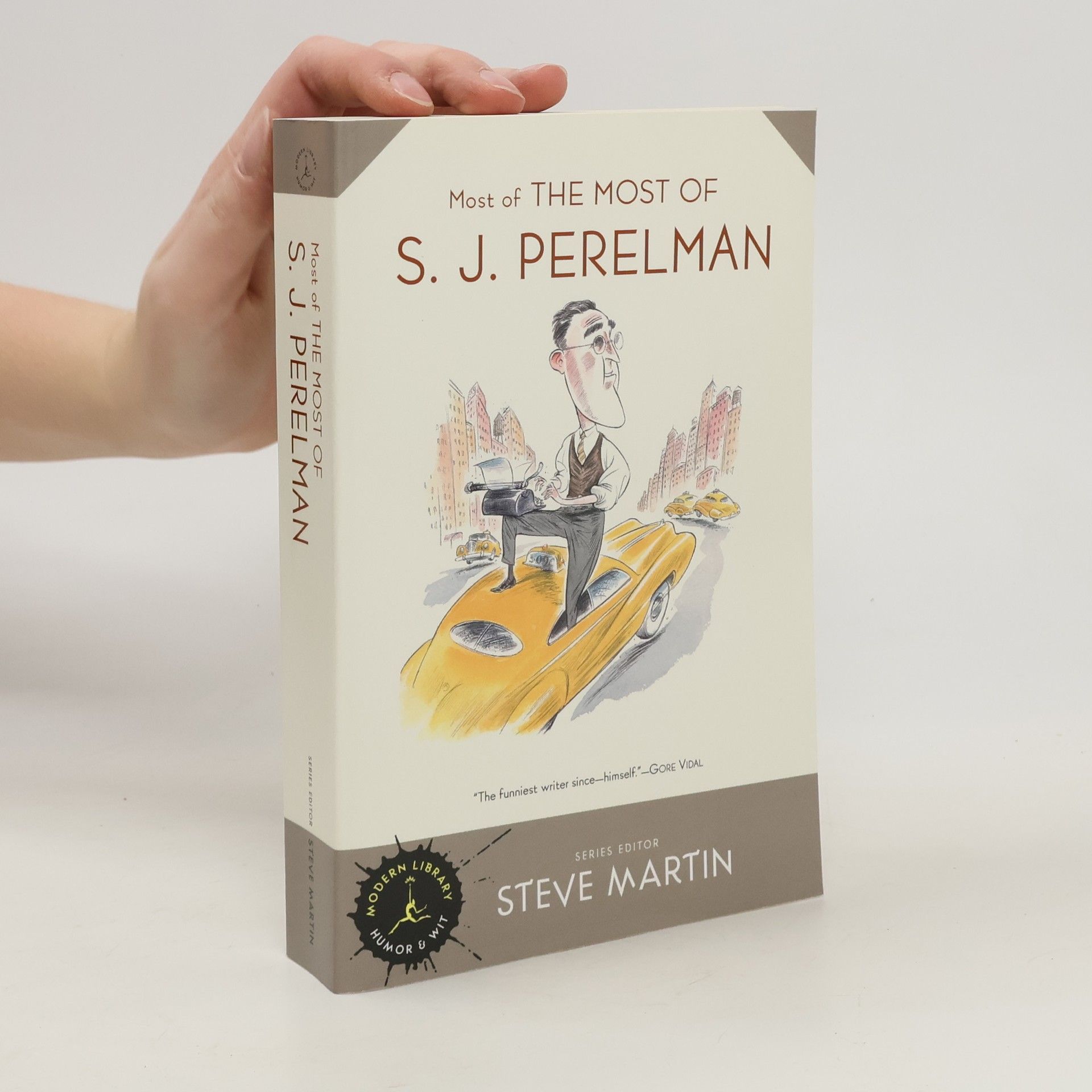This book includes many of the greatest hits from 1930 to 1958--available only in this edition--by the devastatingly witty Perelman, the leading figure of The New Yorker magazine's golden age of humor and one of the most popular American humorists ever. In these hilarious pieces, the charmingly cranky Perelman turns his scathing attention to books, movies, New York socialites, the newspaper business, country life, travel, Hollywood, the publishing industry, and, last but not least, himself. His self-portrait: "Under a forehead roughly comparable to . . . Piltdown Man are visible a pair of tiny pig eyes, lit up alternately by greed and concupiscence. . . . Before they made S. J. Perelman, they broke the mold." Sophisticated and supremely mischievous, Perelman is an acrobat of language who turns a phrase and then, before the reader has time to finish admiring his agility, turns it again.
S J Perelman Boeken




S. J. Perelman's unique humor shines through in this collection, showcasing his mastery of wordplay and absurdity. The book features a variety of his classic works, including "Scenario," a Joycean piece, and "A Farewell to Omsk," a nod to Dostoevsky. Novelist Joshua Cohen introduces these timeless writings to a new audience, emphasizing Perelman's talent for transforming clichés into comedic gold. Readers can expect to enjoy a delightful mix of wit and satire that captures the essence of one of America's most beloved humorists.
The collection features S.J. Perelman's witty reviews of twenty-two forgotten books and silent films, originally published in The New Yorker from 1948 to 1953. With sharp satire, Perelman revisits works like Gertrude Atherton's "Black Oxen" and Sax Rohmer's "The Mystery of Dr. Fu-Manchu," exploring their impact on his youth. His self-reflective humor reveals how revisiting these cultural artifacts mirrors personal growth and change. The paperback also includes a tribute to Perelman's unique style by Adam Gopnik.
Sidney Joseph Perelman, a uniquely original and humorous voice in American literature, crafted gags for the Marx Brothers, won an Oscar for screenwriting, and collaborated on five Broadway plays. His distinctive humor shines in the sketches and satires he wrote for The New Yorker and other publications, which editor Adam Gopnik describes as exploring "American vulgarity" in a shocking yet entertaining manner. This collection features parodies, social satires, autobiographical pieces, and selections from the "Cloudland Revisited" series, where Perelman reflects on his youthful encounters with books and movies and the surprises of revisiting them as an adult. In "Scenario," he presents a surreal Hollywood pitch meeting, blending clichés and slang into a continuous paragraph. "Farewell, My Lovely Appetizer" humorously critiques Raymond Chandler's hardboiled detective fiction, while "No Starch in My Dhoti, S'il Vous Plaît" imagines a comical correspondence between Jawaharlal Nehru's father and a Parisian launderer. The volume also includes Perelman's two-act comedy, The Beauty Part, a spoof on money and art that premiered in 1962. Rounding out the collection are profiles of the Marx Brothers, Dorothy Parker, and Nathanael West, along with letters to notable figures like Edmund Wilson and Groucho Marx.